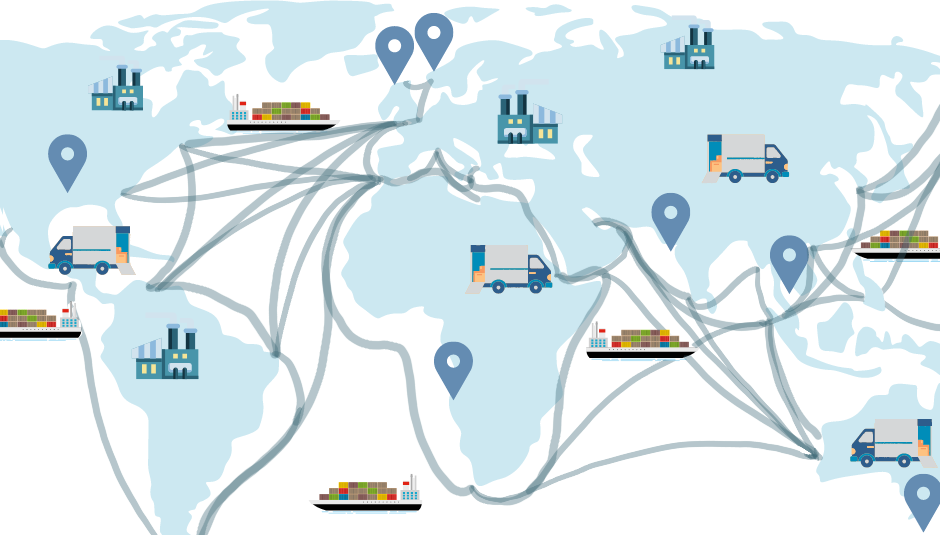Why is traceability and transparency important for improving long-term sustainability?
‘Transparency’ is often used interchangeably with the term ‘traceability’, but they mean very different things when striving for more environmentally sustainable practices across industry. Traceability is specific to information on the origin of a product and the movement of this information through a supply chain. Traceability is important, but in most instances, it should not be an alternative to transparency. Transparency is the practice of making data/information about a product available to the general public, this includes traceability. Fidra advocate for transparency from retailers and manufacturers across multiple industries to demonstrate best practice and align with their sustainability objectives. In many sectors, traceability alone would not include access to key information. Transparency is needed so that people can make informed choices when purchasing products, so that recyclers can safely recycle materials and avoid harmful chemicals, and so that industry can prove they are following best practice. Companies that voluntarily opt to disclose data to a wider audience are seen to be taking a leading role in sectors where transparency is not a mandatory requirement.

Aquaculture – Best practice in salmon farming
Salmon farming represents Scotland’s largest food exports by value. Whilst a lot of environmental data is available online, it is not easily accessible. As a consumer, unless buying certain premium products, you are not able to trace your salmon product from farm to fork. Resistance to transparency tends to fall into categories. Firstly, concerns over competition and commercially sensitive data have been at the forefront of the agenda when transparency has been discussed with certification schemes. Second, retailers do not believe consumers need or want the decision to make environmentally conscious choices in their hands. Our own research has found consumers tend to trust their retailer’s own certification schemes1. Retailers should be providing consumers with the opportunity to learn more by clearly providing information, such as the name of the farm a product is from. The provision of environmental data in a clear and accessible format should be common practice. For an industry which is already under scrutiny due to its impacts on the environment, this is an essential step to increase trust and will demonstrate progress towards sustainability commitments.
Chemical flame retardants in furniture and furnishings
In the case of chemical flame retardants, which can be harmful to human and environmental health, Fidra advocates full transparency of both the types of chemical flame retardants used and where within products they are used. Being able to access this information is critical to not only strive for sustainable fire safety, where chemicals are only used when necessary, but it is also fundamental if the UK wants to promote a safe circular economy. This is important because furniture and furnishings have long life spans, for example the average lifespan of a sofa is 7-15 years. Currently, despite a UK-wide ban of a subgroup of flame retardants knowns as Polybrominated Diphenyl Ethers (PBDEs), there are numerous products, still in our homes that contain PBDEs that were bought before the ban. When we throw out this furniture, these banned chemicals will still be there but there is no way to trace them, so it is hard to stop these banned flame retardants being recycled or disposed of incorrectly. Fidra do not want customers to be in a position where potentially toxic chemicals persist within your homes and the environment because consumers are unaware of the chemicals used in their household products2.
Nurdles – The problem with plastic pellets
Nurdles are small plastic pellets produced by the plastics industry and transported around the world to make nearly all plastic products. Pellet loss across the plastic supply chain is a pervasive pollution problem, with an estimated 230,000 tonnes of pellets are lost to the environment every year3. The Operation Clean Sweep (OCS) toolkit was introduced over 30 years ago to help reduce pellet loss through best practice. Operation Clean Sweep is a voluntary scheme which does not require external audits and which most notably has not led to significant changes in pellet management across the whole supply chain. Fidra want the full plastics supply chain to take responsibility for this issue. At Fidra we believe the creation of robust plastic pellet management certification schemes, where external auditors assess companies against rigorous standards, would hold industry to account and introduce improved and transparent practices. It has been estimated that up 95% of pellet loss is preventable through establishing a supply chain approach4 to this significant problem.
Help us to deliver a transparent, environmentally accountable and safer economy
A wide variety of sectors need to adopt a more transparent approach. As a minimum, all sectors should have supply chain traceability. First and foremost, any level of supply chain transparency provides accountability within the industry and gives the consumer access to important information which can affect their health and the environment. Transparency needs to be common practice and can no longer rely upon voluntary best practice tools. Fidra believe transparency is:
- Vital to support consumer choice and drive best practice in the salmon farming sector;
- The first step to support recyclers to enable safe reuse, recycling and disposal of mattresses;
- The only solution to drive uptake of pollution prevention measures in the plastic pellet industry.
To find out more visit our newly updated projects page at www.Fidra.org.uk/projects
References
[2]Toxic chemicals: How safe is your furniture? (2019, July 16). BBC. https://www.bbc.co.uk/news/uk-49000966
[3] Eunomia. (2016). Plastics in the Marine Environment. https://www.eunomia.co.uk/reports-tools/plastics-in-the-marine-environment/
[4] Eunomia and ICF (2018) Investigating Options for Reducing Releases in the Aquatic Environment of Microplastics Emitter by (but not intentionally added in) Products
